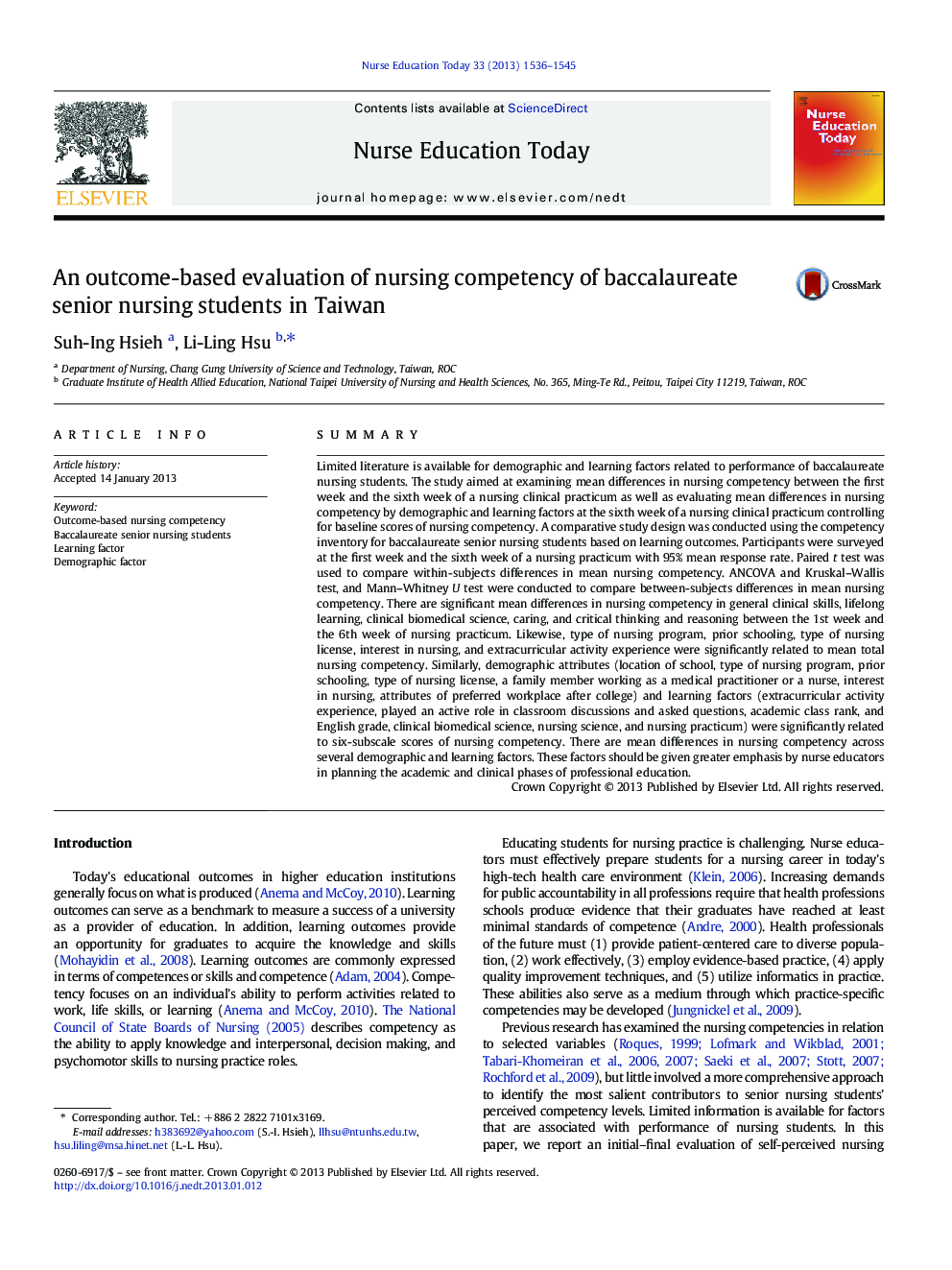| کد مقاله | کد نشریه | سال انتشار | مقاله انگلیسی | نسخه تمام متن |
|---|---|---|---|---|
| 368358 | 621575 | 2013 | 10 صفحه PDF | دانلود رایگان |

SummaryLimited literature is available for demographic and learning factors related to performance of baccalaureate nursing students. The study aimed at examining mean differences in nursing competency between the first week and the sixth week of a nursing clinical practicum as well as evaluating mean differences in nursing competency by demographic and learning factors at the sixth week of a nursing clinical practicum controlling for baseline scores of nursing competency. A comparative study design was conducted using the competency inventory for baccalaureate senior nursing students based on learning outcomes. Participants were surveyed at the first week and the sixth week of a nursing practicum with 95% mean response rate. Paired t test was used to compare within-subjects differences in mean nursing competency. ANCOVA and Kruskal–Wallis test, and Mann–Whitney U test were conducted to compare between-subjects differences in mean nursing competency. There are significant mean differences in nursing competency in general clinical skills, lifelong learning, clinical biomedical science, caring, and critical thinking and reasoning between the 1st week and the 6th week of nursing practicum. Likewise, type of nursing program, prior schooling, type of nursing license, interest in nursing, and extracurricular activity experience were significantly related to mean total nursing competency. Similarly, demographic attributes (location of school, type of nursing program, prior schooling, type of nursing license, a family member working as a medical practitioner or a nurse, interest in nursing, attributes of preferred workplace after college) and learning factors (extracurricular activity experience, played an active role in classroom discussions and asked questions, academic class rank, and English grade, clinical biomedical science, nursing science, and nursing practicum) were significantly related to six-subscale scores of nursing competency. There are mean differences in nursing competency across several demographic and learning factors. These factors should be given greater emphasis by nurse educators in planning the academic and clinical phases of professional education.
Journal: Nurse Education Today - Volume 33, Issue 12, December 2013, Pages 1536–1545